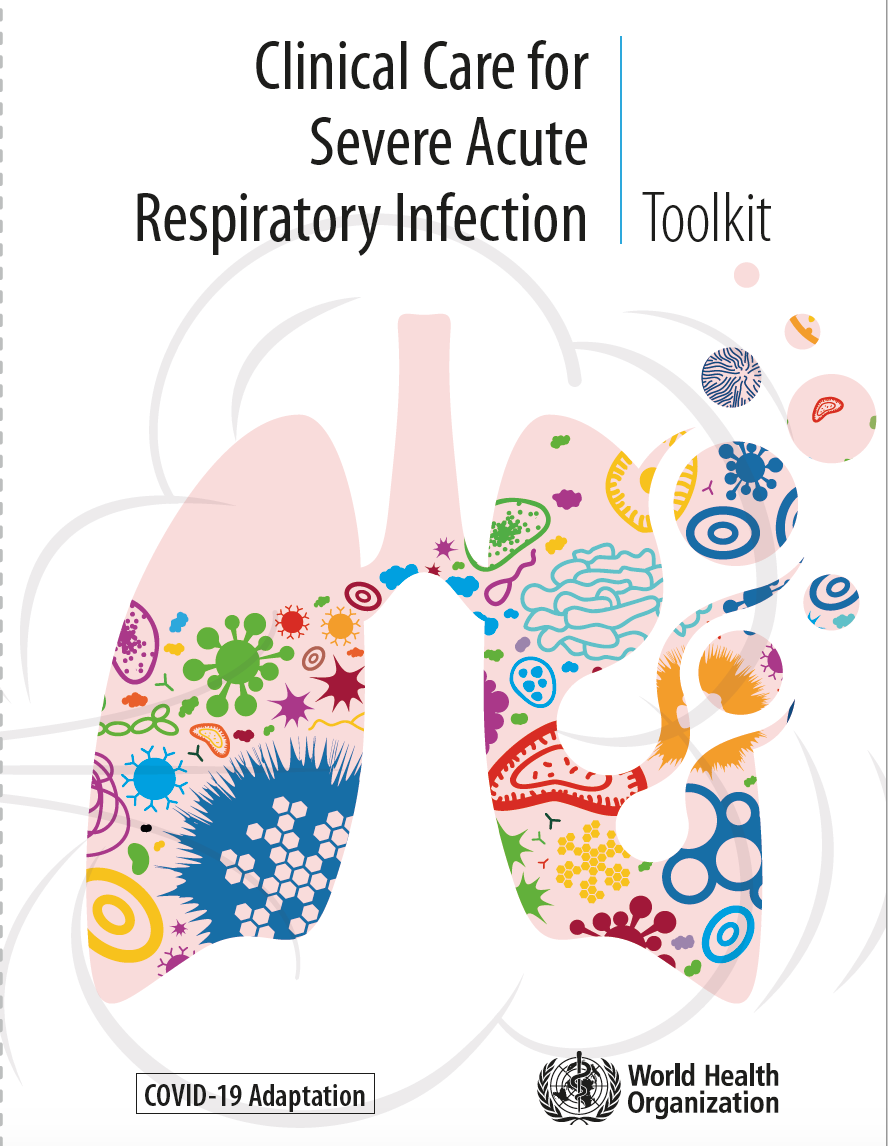Clinical Care of Severe Acute Respiratory Infections – World Health Organization Toolkit

This toolkit is intended for clinicians working in intensive care units in low- and middle-income countries, managing adult and paediatric patients with severe forms of acute respiratory infection, including severe pneumonia, acute respiratory distress syndrome, sepsis and septic shock. Its main objective is to provide some of the necessary tools that can be used to care for the critically ill patient from hospital entry to hospital discharge. It is a hands-on practical guide to be used by health care professionals involved in critical care management during the COVID-19 pandemic and outbreaks of influenza (seasonal or avian influenza), Middle East respiratory syndrome coronavirus (MERS-CoV) or other emerging respiratory viral epidemics.
The toolkit is structured by topic. Each topic starts with a summary and follows with the list of the available tools and complementary references and resources. The tools provide a framework for users and are to be adapted to local conditions.
